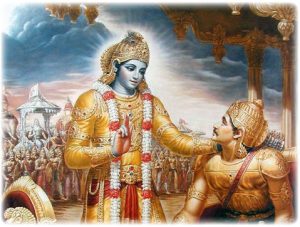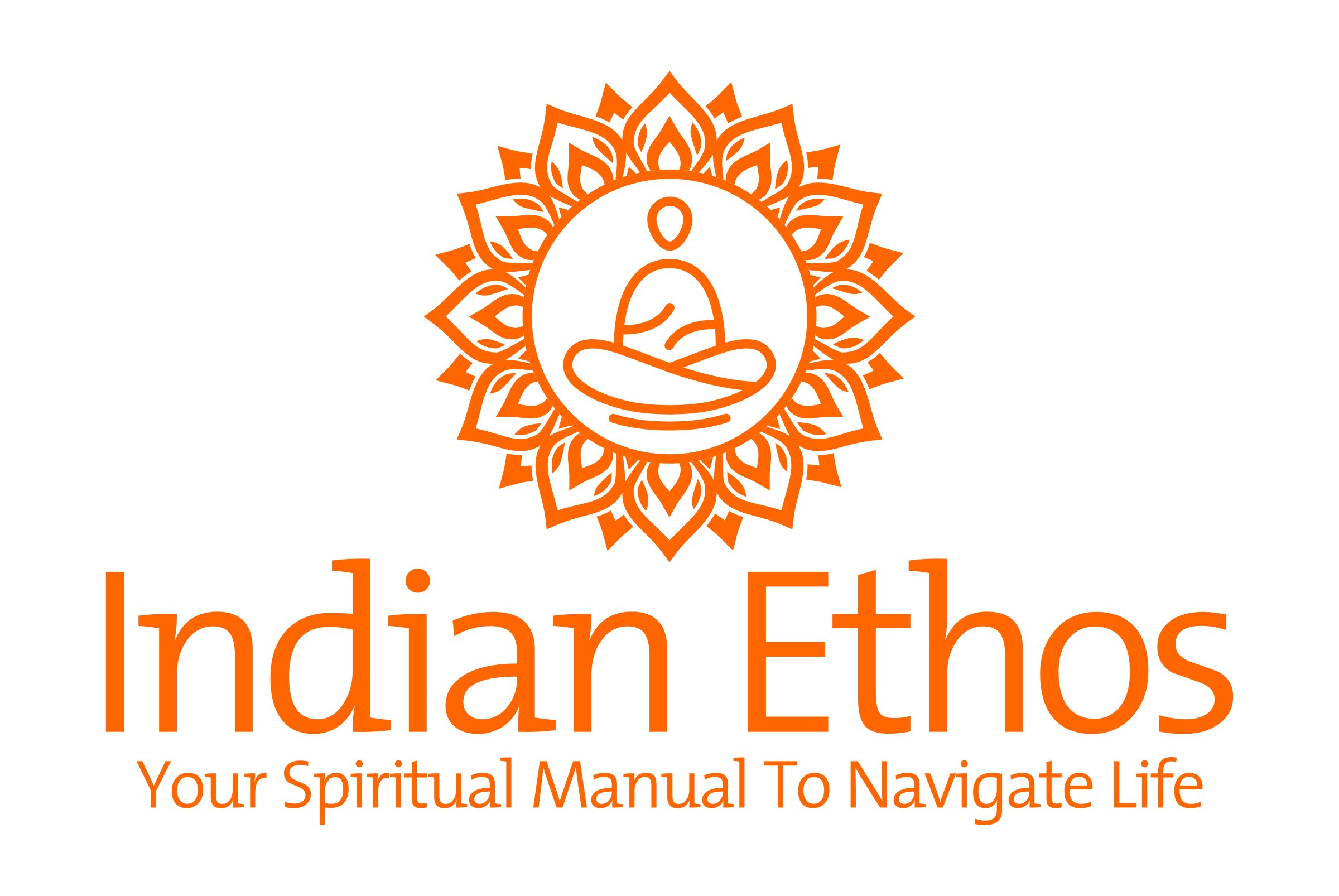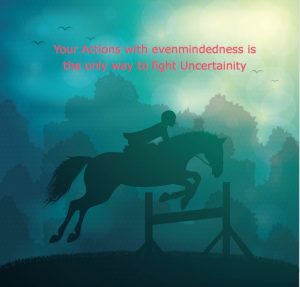Many times we fail to act in our difficult times when our mind and as well  as decision making capability is clouded with negative emotions of fear & grief. Instead of trying to come out of our difficult situation and fight against the odds we blame external factors responsible for it, trying to justify our inaction. We fail to understand that our grief & depression will not solve the problem and are definitely not an alternative of the actions that we should address and resolve the issues. The required action in the need of the hour is actually our Dharma (religion) which will not only give us the inner strength but will also solve the problem.
as decision making capability is clouded with negative emotions of fear & grief. Instead of trying to come out of our difficult situation and fight against the odds we blame external factors responsible for it, trying to justify our inaction. We fail to understand that our grief & depression will not solve the problem and are definitely not an alternative of the actions that we should address and resolve the issues. The required action in the need of the hour is actually our Dharma (religion) which will not only give us the inner strength but will also solve the problem.
The below mentioned lines are taken from Bhagvad Gita – Chapter 2, Shloka 38, where Lord Krishna very clearly states about the importance of following Swadharma (Religion for Self) with an equanimity of mind in all life situations. This was the time when Arjuna refused to fight in the battlefield against his own near and dear ones and even gave some logical reasons out of his fear and attachment for not fighting the war. Lord Krishna at this time explained him the importance of keeping a balance frame of mind and doing his rightful job of fighting the war for the sake of Dharma. This is also considered to be the start point of the famous Karma Yoga, which we shall take in depths in our later posts:-
“Sukh dukhey samey kratva labhalabhou jayajayou
Tato yudhaya yujyasva naivam paapamvaapsyasi”
“Equalising (by even mindedness) happiness and sorrow,
Profit and loss, triumph and failure – so encounter
Thou the battle, thus thou will not acquire the sin”.
Challenges posed by life at that time are same as they are in this time and hence the teachings of Lord Krishna in Bhagvad Gita are also very much relevant for our present times. Every individual in his life not once but at various point of times face this type of situation which Arjuna faced during the battlefield. We all are encountered by dualities of life at various levels – be it sukh & Dukh ie happiness and sorrow at intellectual level, profit & loss (labh & alabhou) at mental level, victory & defeat (jaya & jaou) at physical level.
Lord Krishna was only reminding Arjuna of his role ‘karma’, in his confused state of mind encountered by above dualities. Arjuna was overpowered by the negative emotions of fear, attachment, and uncertainty and was unable to judge the right course of action. It is a fact that most of the times we take our decisions of our life on the basis of personal gains and losses associated with it. We are not governed by our Dharma, but by our personal interests, inclinations and attachments. Arjuna was also going through the same frame of mind and hence was taking biased decisions of not fighting the war. Law of Karma also called Law of Cause and Effect states that even if you fail to act in the need of hour then your inaction will also be treated as an action and its effect will come back to you sooner or later without fail.
Lord Krishna guided Arjuna not only to take action with even mindedness, but also helped him to get through the end of the Historical War at Kurukshetra. It is a lesson for all of us to understand that adverse situations of life can demoralise anybody of us irrespective of our position, mental strength & physical skilfulness, But ultimate winner is that one who not only fight against all those adversities but also come out as a winner by defeating all his negative emotions. Be it our workplace or be it our personal lives- We must be able to maintain equanimity of mind without being overpowered by negative emotions of fear, failure & frustration. Our stable mind and all positive emotions will definitely act as a mentor as Lord Krishna acted in Mahabharata, and we will ultimately come out as a winner in life against all those negative emotions.



